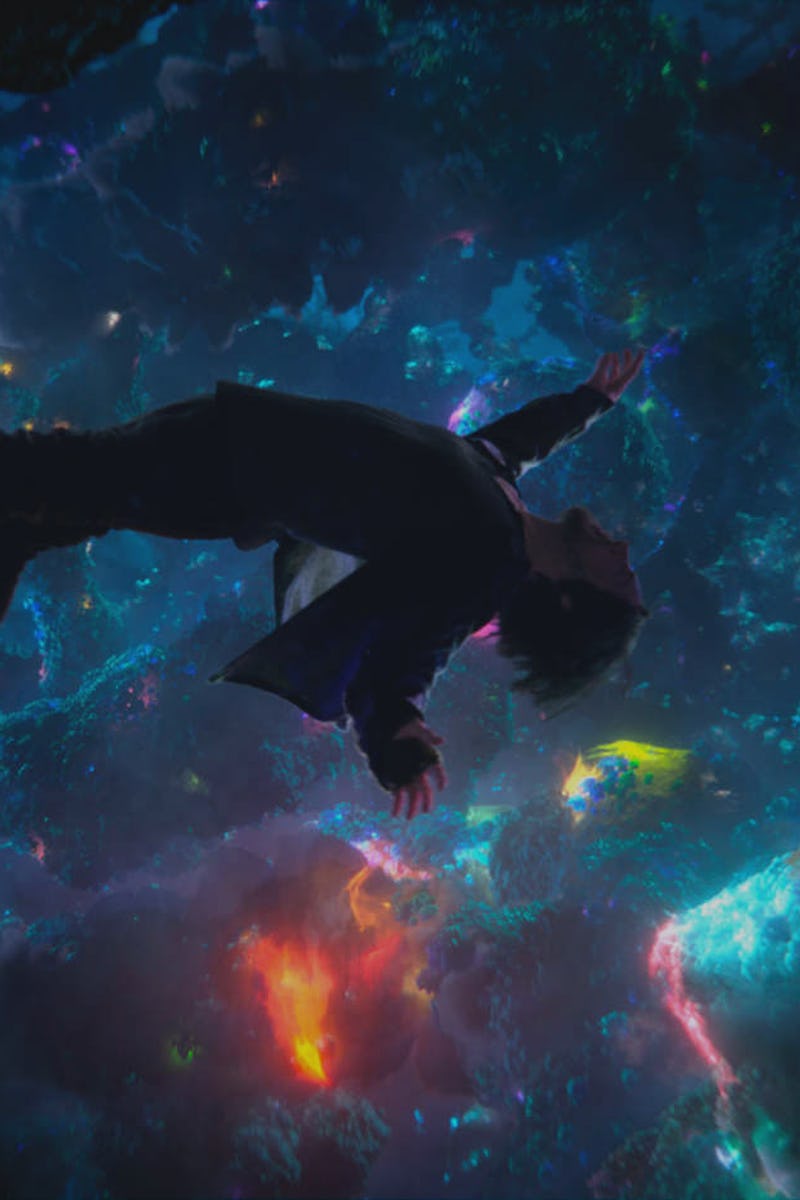
“The multiverse is a concept about which we know frighteningly little.”
'Spider-Man: No Way Home's multiverse reveals a huge problem facing Marvel
Does anyone at Marvel Studios understand where this multiverse story is going? Here’s why there’s reason to be concerned after 'Spider-Man: No Way Home.'
by Jake KleinmanIf the Infinity Stones defined the first decade of the Marvel Cinematic Universe, the “multiverse” may define the second. But as Marvel gears up for a new saga, the future of the multiverse is becoming increasingly unclear. Instead of setting up a clear path forward, each new entry in the MCU seems to be presenting a different take on the multiverse, and Spider-Man: No Way Home is the worst one yet.
Does anyone at Marvel Studios understand where this multiverse story is going? Here’s why there’s reason to be concerned. (Spoilers follow for Spider-Man: No Way Home.)
The multiverse and Marvel
Based on an actual scientific theory that multiple (or infinite) versions of our reality can coexist simultaneously, the multiverse first appeared in comics in The Flash #123 (1961) where DC’s speedster meets an alternate reality version of himself. The idea quickly caught fire, showing up in various superhero tales over the decades, from DC’s Crisis on Infinite Earths to Marvel’s Secret Wars.
“Flash of Two Worlds” introduced the multiverse to superhero stories.
The concept of the multiverse in the MCU was first alluded to in Thor: The Dark World (2013) with a subtle nod to alternate realities. In 2016’s Doctor Strange, the Ancient One (Tilda Swinton) offers a more concrete definition:
“You think you know how the world works? You think that this material universe is all there is? What is real? What mysteries lie beyond the reach of your senses? At the root of existence, mind and matter meet. Thoughts shape reality. This universe is only one of an infinite number. Worlds without end. Some benevolent and life-giving; Others filled with malice and hunger. Dark places, where powers older than time lie... ravenous... and waiting. Who are you in this vast multiverse, Mr. Strange?”
Seems pretty straightforward, right? But since then, Marvel Studios has played it fast and loose with the idea of the multiverse. Loki focused heavily on the concept, revealing that the Time Variance Authority had been pruning the timeline all along to flatten the multiverse into the single thread (aka, the Marvel Cinematic Universe).
This seems to contradict the Ancient One, who said in Doctor Strange that the multiverse actively exists. Then again, Loki ends with the murder of the TVA’s leader (He Who Remains, aka, Kang the Conqueror) and the destruction of the “Sacred Timeline.” So maybe the Ancient One wasn’t wrong, just early.
Except, Spider-Man: No Way Home managers to throw a wrench in the entire thing yet again.
How Spider-Man: No Way Home scrambles the multiverse
Read more on our Spider-Man: No Way Home hub.
After using the concept as a fakeout twist in Far From Home, the newest Spider-Man movie confirms that the multiverse does indeed exist.
“The multiverse is a concept about which we know frighteningly little,” Doctor Strange tells Peter Parker, blowing the young superhero’s mind.
Here, the multiverse is used as a plot device. It explains how villains and Spider-Men from previous non-MCU movies can exist alongside Tom Holland’s Spider-Man. It also sets the stage for future crossovers. Old X-Men actors could show up in future X-Men movies thanks to the multiverse. We might even see Wesley Snipes reprise his role in Mahershela Ali’s upcoming Blade.
Does the Marvel multiverse include Fox’s X-Men movies?
On the one hand, it’s exciting to see Marvel Studios use the multiverse for something practical. Rather than just a lot of trippy monologues like in Doctor Strange and Loki, in No Way Home, the multiverse has tangible applications that are unequivocally awesome.
On the other hand, Spider-Man: No Way Home does almost nothing to push forward a larger multiversal story in the MCU. The movie ends with the multiverse closed back up, suggesting the events of Loki may have virtually no impact on Marvel’s larger saga. It almost seems like Marvel is telling various directors and writers to run wild with the concept of the multiverse without giving much thought to how it will all connect later on.
Hopefully, I’m wrong. The MCU has a good track record, and I’m still confident Kevin Feige can figure this one out. But after Spider-Man: No Way Home, I’m starting to doubt Marvel’s multiverse can provide a 10-year-long saga as satisfying as the one that came before it.
Spider-Man: No Way Home is in theaters now.
This article was originally published on